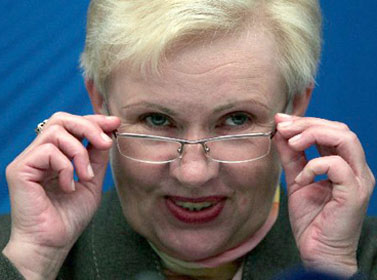Strict information diet: Why CEC hides its decisions?
The Central Election Commission fails to publish all of its rulings, says Barys Bukhel, a human rights activist in Mahilioŭ. According to him, he first paid attention to the problem during the 2010 presidential election and nothing has changed since then.
A long-standing problem
In 2010, Barys Bukhel wrote to the CEC chairperson arguing that the CEC website did not have more than three quarters of its decisions and official documents. In her response, Lidziya Yarmoshyna said there was no point in posting information about election officials’ working trips and recommendations sent to local commissions. The website had all the necessary information, said she, and thus the activist’s complaint was groundless.
A later suit filed with the Supreme Court was also dismissed.
Two years later, during the 2012 parliamentary elections, the human rights activist once again complained to the CEC that the website does not have most of its decisions. The CEC once again said all the necessary information is available online, and if some rulings are absent, then they are of no great significance to the voters.
Barys Bukhel says that little has changed since then and there is still very little information available on the CEC website.
“There are only 24 resolutions there, i.e. the website has only 36.36% of all decisions taken by the CEC,” says Baris Bukhel.
A closed website
The human rights activist believes that election authorities have another resource with full access to all CEC decisions.
“The website of the Mahilioŭ Regional Executive Committee provides information about the heads and secretaries of local precinct commissions, which mentions a document entitled “Annex No. 13 to Resolution No. 25 of the Central Commission of Belarus for Elections and National Referendums of July 1, 2015”. However, the CEC website does not have this decision, nor is it mentioned in other documents. In my opinion: there is another, secret online resource run by the CEC, which can be accessed by only the heads of state authorities, as well as regional and district TECs,” says the activist.
Barys Bukhel believes that by not publishing more than three-quarters of CEC decisions, election authorities violate parts 1 and 2 of Article 13 of the Electoral Code, which, among other things, says that the “preparation and conduct of elections... shall be open and transparent.”
Crisis of confidence
Why is it bad not to publish all CEC decisions?
“Firstly, I believe that the CEC and any secret are fundamentally incompatible concepts. But, unfortunately, the CEC members and the Belarusian authorities do not believe it’s true,” says Barys Bukhel. “The Central Election Commission, as well as other government agencies, operates for the money provided by the budget. The budget consists of voters’ taxes, who, in fact, finance the holding of elections in the Republic of Belarus. To improve the electoral process and take every step possible that the elections were fair, that is, open and transparent, and at the highest level, is the only task of the Central Election Commission. The CEC implements its activities through its decisions. In many respects, it is through these documents that we can follow the work of the Central Election Commission. Of course, if in the end of each election campaign we see less than a quarter of adopted decisions, there arise questions concerning the fairness and openness of the CEC. Another important point is the publication of only some of the regulations. This selectivity means that someone decides for us, the voters, which results of their work we can see. Can you believe the CEC members that they do not hide anything important? I can’t. And, as we see, the voters have every reason to doubt this, either.”
Source: mahilyowspring.org


